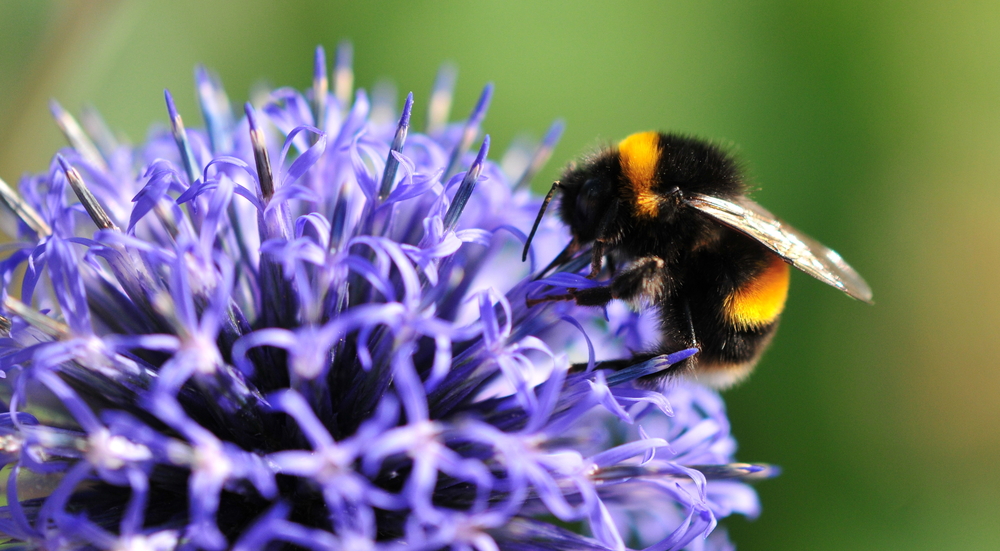

Bees are the building blocks that the world is built on.
It has been prophesised that if bees disappeared from the earth, humans would also cease to exist. The length of time it would take for humans to become extinct has not been precisely determined and would probably depend on factors such as management of food stocks at the time of the catastrophe (this could be the subject of a dystopian novel!) behaviours of different countries and the list could go on and on.
If the humble bee was not around to pollinate our fruit, vegetables and crops, we would starve. Not even Trump and Morrison sending missions to Mars would save us. In my humble opinion, the money to be spent on trying to colonise Mars would be better spent on research into our current issues including the diseases that are threatening to wipe out bee colonies worldwide. Arguments could be mounted that crops could be artificially fertilised and food could be synthesised in some laboratory somewhere and these practices are already being researched and are in existence, but the current world population could not be maintained and what would our life look like under this system (I am sure there is a dystopian novel out there that covers this). I know how I would rather live.
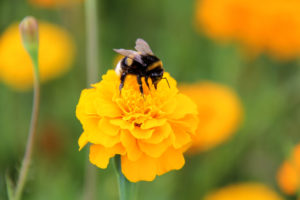
Many individuals and organisations globally are working to prevent further damage to bee health. I attended a forum in Albury earlier this year where Toni Childs (the sultry-voiced singer from the 90’s) spoke to Bee Keepers about her organisation that aims to increase bee health. There are an enormous number of organisations with similar aims. A google search of bee organisations will bring up a number of organisations from local Bee Keeper Associations to global organisations. There are a number of organisations that use social media as a fundraising platform through sales of bee specific jewellery etc. There are mountains of research and scientifically informed strategies out there so do a little bit of research and go with what you think will make a difference.
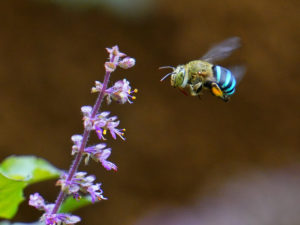
Honey Bees are not the only type of bees that are in danger and we need to also be aware of native bees, both those who live in colonies and those who are solitary. Many native bees are indigenous within a specific area so it is worth doing some investigations into your own region to determine what types of bees you have potential to host at your place.
Personally, I don’t keep bees as my husband has a severe allergy to bee stings (he is aware that when a hive appears on our land it is a not so subtle message that his days are numbered!) so I see my role as a bee warrior and habitat provider. A common thread throughout this JAG Blog is that we don’t have the power as individuals to influence governments and policy-makers, but we do have the power individually to alter our own small environment. There are hundreds of things we can do to improve the plight of local bees; I will outline a small number here but there are many more.
Possibly the most obvious thing we can do individually is to reduce or totally remove the use of pesticides in our own environment. I don’t like flies and European wasps but I can live with them and there are a range of other strategies to reduce the numbers. I use natural baits for fruit fly around my fruit trees as I believe that is a responsible thing to do. The use of pesticides and herbicides can be a very divisive and inflammatory topic so I will not get into it too deeply here, suffice to say do what you think is best in your environment.
Water is essential for the survival of bees. Providing flat dishes of water throughout your garden that you refresh regularly throughout the hot summer months is beneficial. Placing rocks, glass beads or small pieces of wood in the water give bees (and other insects such as butterflies) a place to perch as they drink, reduces the chance of drowning. I have read that bees will travel up to 5 kilometres in search of water sources so even if you don’t have beehives near you there may well be native bees and others that you are not aware of who can use a source of water.
Food is the other essential for bees. Over the winter I noticed that the rocket that I left to go to seed was attracting large numbers of bees along with the Calendula I planted specifically to attract bees and other beneficial insects. Plants that have gone to seed may not look overly attractive in a neat and tidy garden (a perfect excuse to have an untidy garden) but they have their own beauty and will provide you with seeds that you don’t need to pay for that are adapting to your specific environment. I follow Permaculture Principles within my garden so I don’t plant in neat rows and I allow most plants to go to seed so that I always have surprises popping up in the garden.
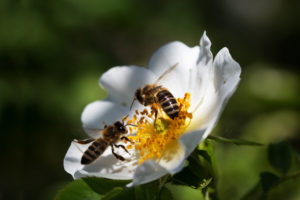
Plant a wide variety of flowering plants that flower at different times so that you always have something flowering. Perennials such as Lavender and Rosemary are highly attractive to bees along with some plants that people classify as weeds such as Dandelions. Any and all flowers will attract bees to varying degrees. If their favourites aren’t available, they will use whatever is available. Those gardens with neatly cut lawns and herbaceous borders are the ones that are deserts for bees. Daisies in your lawns and weeds in your borders are way more attractive but if you have a penchant for neat and tidy gardens plant some flowering bushes and provide watering spots. Apparently, bees will travel up to one kilometre for food so you don’t need to have your own hives to be providing food for bees.
Shelter for solitary bees is as important as the provision of habitat for other native species. Manufactured insect houses are widely available currently and make a great gift for those who are interested in gardens and wildlife, but you don’t need to purchase one as they are quite simple to construct. A piece of untreated timber with some holes drilled (slightly upward trajectory) into it and mounted on a wall or fence will do the job. A terracotta pot with lengths of bamboo crammed into it and left on its side in a sheltered area of the garden also provides habitat.
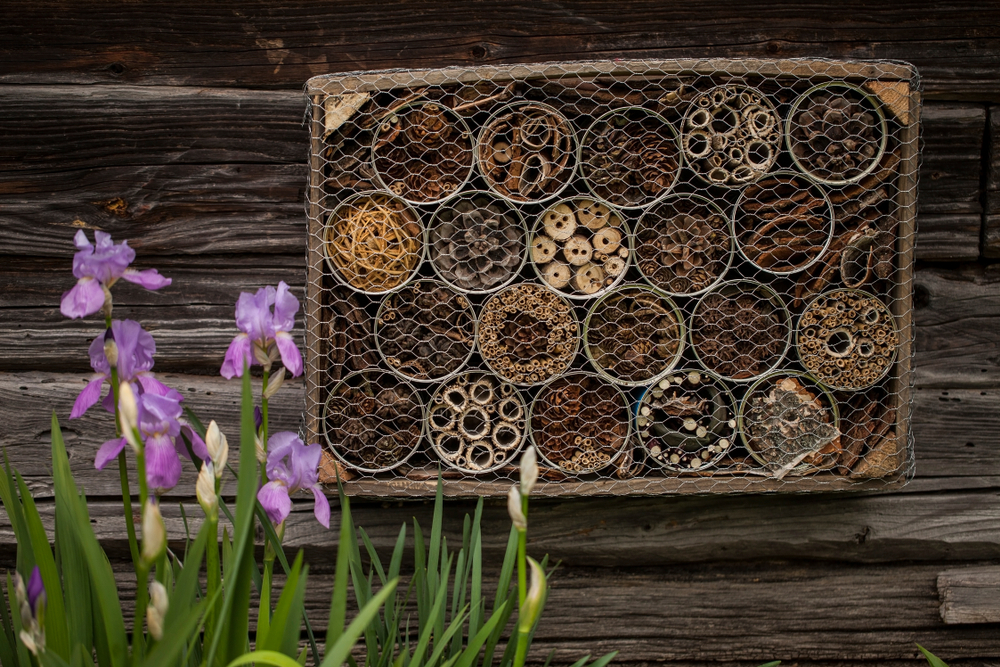
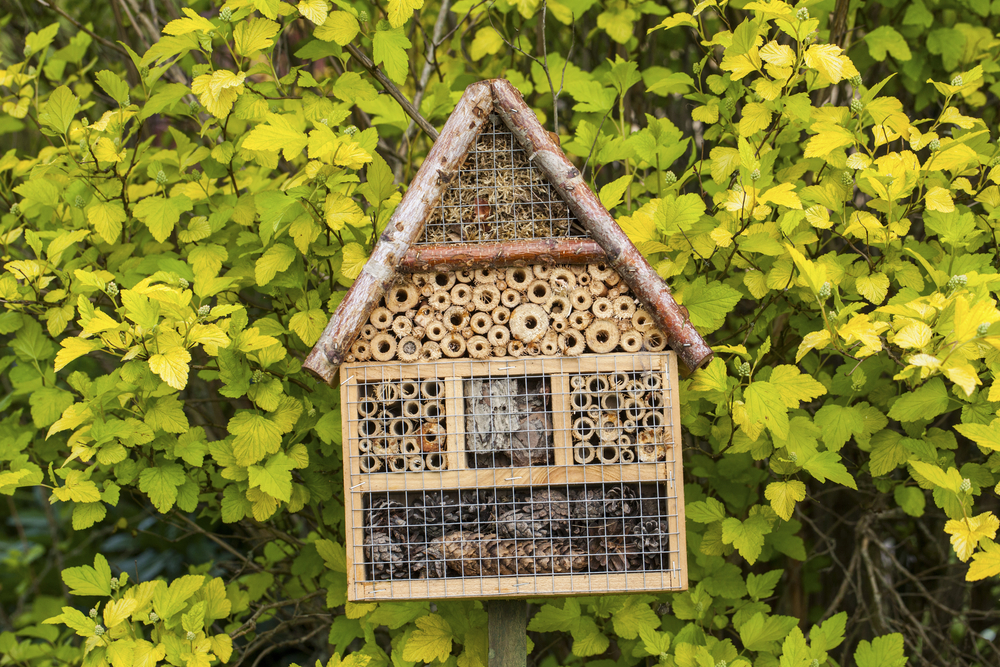
Making just one change to provide for bees is fantastic, focussing on the provision of habitat food and water by a small number of us is amazing. Imagine if each one of us did one thing the change we could make.